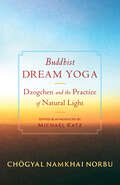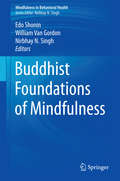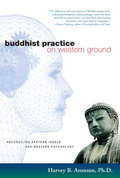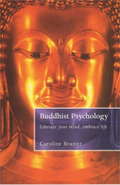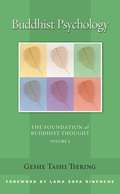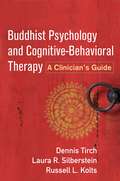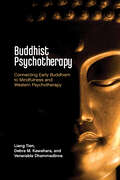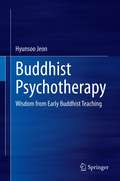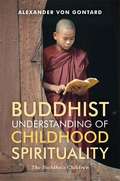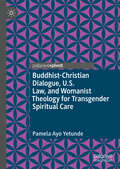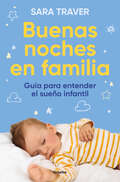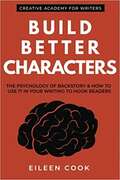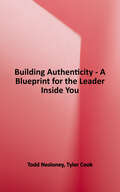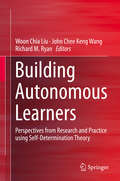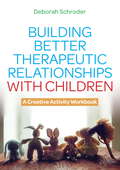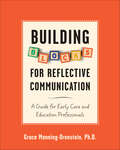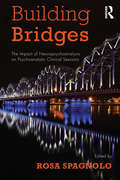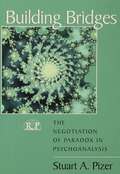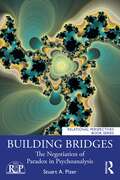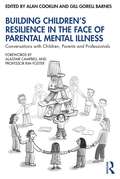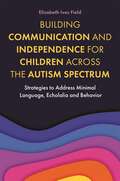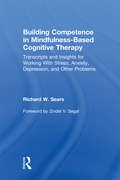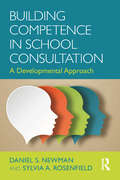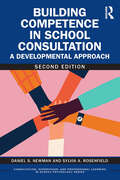- Table View
- List View
Buddhist Dream Yoga: Dzogchen and the Practice of Natural Light
by Chogyal Namkhai Norbu Jamgon MiphamAn instructional presentation of exercises rooted in the tradition of Dzogchen for enhancing self-awareness and developing clarity within sleep and dream states throughout all moments of the day and night.In Buddhist Dream Yoga, Chögyal Namkhai Norbu gives instructions for developing clarity within the sleep and dream states. He goes beyond the practices of lucid dreaming that have been popularized in the West by presenting methods for guiding dream states that are part of a broader system for enhancing self-awareness called Dzogchen. In this tradition, the development of lucidity in the dream state is understood in the context of generating greater awareness for the ultimate purpose of attaining liberation. Also includes: Specific methods for engaging with dreams and practices to help maintain one&’s focus throughout both day and night Additional material from a profound and personal Dzogchen book written by Chögyal Namkhai Norbu over many years A text written by Jamgon Mipham, the nineteenth-century master of Dzogchen, which offers additional insights into this extraordinary form of meditation and awareness
Buddhist Foundations of Mindfulness (Mindfulness in Behavioral Health)
by Nirbhay N. Singh Edo Shonin William Van GordonThis book explores a wide range of mindfulness and meditative practices and traditions across Buddhism. It deepens contemporary understanding of mindfulness by examining its relationship with key Buddhist teachings, such as the Four Noble Truths and the Noble Eight-Fold Path. In addition, the volume explores how traditional mindfulness can be more meaningfully incorporated into current psychological research and clinical practice with individuals and groups (e. g. , through the Buddhist Psychological Model). Key topics featured in this volume include: Ethics and mindfulness in Pāli Buddhism and their implications for secular mindfulness-based applications. Mindfulness of emptiness and the emptiness of mindfulness. Buddhist teachings that support the psychological principles in a mindfulness program. A practical contextualization and explanatory framework for mindfulness-based interventions. Mindfulness in an authentic, transformative, everyday Zen practice. Pristine mindfulness. Buddhist Foundations of Mindfulness is an indispensable resource for clinical psychologists, and affiliated medical and mental health professionals, including specialists in complementary and alternative medicine as well as social work as well as teachers of Buddhism and meditation.
Buddhist Practice on Western Ground: Reconciling Eastern Ideals and Western Psychology
by Harvey Aronson"This is the first book to offer Buddhist meditators a comprehensive and sympathetic examination of the differences between Asian and Western cultural and spiritual values. Harvey B. Aronson presents a constructive and practical assessment of common conflicts experienced by Westerners who look to Eastern spiritual traditions for guidance and support--and find themselves confused or disappointed. Issues addressed include: *
Buddhist Psychology
by Caroline BrazierWestern therapeutic approaches have often put considerable emphasis on building self-esteem and enhancing a positive sense of self. This book challenges the assumption behind this approach. Most of us protect ourselves against being fully alive. Because we fear loss and pain, we escape by withdrawing from experiences and distracting ourselves with amusements. We fall into habitual ways of acting and limit our experience to the familiar. We create an identity which we think of as a 'self', and in so doing imprison our life-energy.For 2500 years Buddhism has developed an understanding of the way that we can easily fall into a deluded view. It has shown how the mind clings to false perceptions and tries to create permanence out of an ever changing world. Written by a practising therapist and committed Buddhist, this book explores the practical relevance of Buddhist teachings on psychology to our everyday experience. By letting go of our attachment to self, we open ourselves to full engagement with life and with others. We step out of our self-made prison.
Buddhist Psychology
by Caroline BrazierWestern therapeutic approaches have often put considerable emphasis on building self-esteem and enhancing a positive sense of self. This book challenges the assumption behind this approach. Most of us protect ourselves against being fully alive. Because we fear loss and pain, we escape by withdrawing from experiences and distracting ourselves with amusements. We fall into habitual ways of acting and limit our experience to the familiar. We create an identity which we think of as a 'self', and in so doing imprison our life-energy.For 2500 years Buddhism has developed an understanding of the way that we can easily fall into a deluded view. It has shown how the mind clings to false perceptions and tries to create permanence out of an ever changing world. Written by a practising therapist and committed Buddhist, this book explores the practical relevance of Buddhist teachings on psychology to our everyday experience. By letting go of our attachment to self, we open ourselves to full engagement with life and with others. We step out of our self-made prison.
Buddhist Psychology
by Lama Thubten Zopa Rinpoche Geshe Tashi Tsering Gordon McdougallThis new volume from the Foundation of Buddhist Thought series, provides a stand-alone and systematic - but accessible - entry into how Buddhism understands the mind. Geshe Tashi, an English-speaking Tibetan monk who lives in London, was trained from boyhood in a traditional Tibetan monastery and is adept in communicating this classical training to a modern Western audience. Buddhist Psychology addresses both the nature of the mind and how we know what we know. Just as scientists observe and catalog the material world, Buddhists for centuries have been observing and cataloging the components of inner experience. The result is a rich and subtle knowledge that can be harnessed to the goal of increasing human well being.
Buddhist Psychology and Cognitive-Behavioral Therapy
by Dennis Tirch Laura R. Silberstein Russell L. KoltsThis user-friendly guide to the basics of Buddhist psychology presents a roadmap specifically designed for cognitive-behavioral therapy (CBT) practitioners. It explains central Buddhist concepts and how they can be applied to clinical work, and features numerous experiential exercises and meditations. Downloadable audio recordings of the guided meditations are provided at the companion website. Essential topics include the relationship between suffering and psychopathology, the role of compassion in understanding and treating psychological problems, and how mindfulness fits into evidence-based psychotherapy practice. The book describes an innovative case conceptualization method, grounded in Buddhist thinking, that facilitates the targeted delivery of specific CBT interventions.
Buddhist Psychotherapy: Connecting Early Buddhism to Mindfulness and Western Psychotherapy
by Liang Tien Debra M. Kawahara Venerable DhammadinnaA rich resource enabling therapists to bring Buddhist philosophy to modern psychotherapy. Mindfulness‑based interventions have become popular mental health treatments in recent years, but these interventions are typically applied by practitioners who lack knowledge of the interventions&’ Buddhist origins. The historical, religious, and philosophical foundations of mindfulness offer essential insights for clinicians and researchers alike. This book, a collaboration between two practicing psychologists and an ordained Buddhist nun, examines the early Buddhist philosophical roots of mindfulness and provides a model for modern psychotherapy. In Buddhist psychotherapy, the therapist listens to a client discuss their concerns, considers how the client&’s suffering can be conceptualized from a Buddhist worldview, and uses mindfulness and other techniques taught by the Buddha to address the source of their suffering. This framework does not rely on any specific spiritual belief, but instead seeks to alleviate client suffering in a world where everything is ultimately impermanent and impersonal. Amply illustrated with quotes from early Buddhist literature as well as modern clinical examples, this rich volume will help modern psychotherapists deepen their understanding of mindfulness and enrich their practice.
Buddhist Psychotherapy: Wisdom from Early Buddhist Teaching
by Hyunsoo JeonThis book explores how to utilize Buddhism in psychotherapy and how Buddhism itself acts as a form of psychotherapy, using Buddhism practices as a lens for universal truth and wisdom rather than as aspects of a religion. Based on the author's over 30 years of study and practice with early Buddhism and his experiences of Buddhism with his patients, the book outlines a new form of psychotherapy incorporating three Buddhist principles: the properties of the body and mind, the principle of world’s movement, and living with wisdom. This technique provides a unique perspective on mental health and offers new approaches for clinicians and researchers to effectively addressing mental health and well-being.
Buddhist Understanding of Childhood Spirituality: The Buddha’s Children
by Alexander Von GontardIn this book, Alexander von Gontard, a child psychiatrist, uses the language, thought and imagery of Buddhism to explore the spirituality of children. The book begins by exploring the Buddha's own childhood and the 'divine child' in Buddhism, a key archetype in Jungian psychology. The author defines the spirituality and religiosity of children and adolescents and identifies manifestations of spirituality in children, such as experiences of awe and wonder, and favourable conditions for spirituality, such as silence, nature, extreme conditions and mindfulness. Drawing on his own experience working with children in therapeutic practice, von Gontard discusses the parallels between spontaneous spirituality seen in childhood and the Buddha's teachings. Revealing how the spiritual insights and experiences of children and adolescents can uncover a deep and wise understanding of human life that is compatible with the Buddha's teachings, this book will be of particular interest to professionals and academics in psychology, psychiatry, psychotherapy, education and religious studies.
Buddhist-Christian Dialogue, U.S. Law, and Womanist Theology for Transgender Spiritual Care
by Pamela Ayo YetundeThis book, written with hospital spiritual care providers in mind, investigates how to expand the field and scope of compassion within the hospital context, for the spiritual care and safety of transgender patients. Written by a law-educated pastoral counselor, it advocates for chaplain legal literacy, and explains the consequences of spiritual care providers not knowing more about the law. It explores the current political and legal situation transgender hospital patients find themselves in, and especially how these new policies put transgender people at risk when they are in a hospital setting. Pamela Ayo Yetunde offers Buddhist-Christian activist interreligious dialogue methods to promote deeper understanding of how spiritual practices can cultivate empathy for transgender patients.
Buenas noches en familia. Guía para entender el sueño infantil
by Sara TraverIdeas prácticas, sostenibles y realistas para mejorar en profundidad el descanso de tod a la familia. Como asesora de sueño que lleva años trabajando con familias cansadas, sé que el tiempo, la concentración y las ganas se reducen mucho cuando los niveles de agotamiento o preocupación están fuera de todo lo esperable. Así que, por si estás hojeando este libro para ver si cumple con lo que esperas de él, voy a tratar de resumirte en tres frases su contenido:- Tu hijo ya sabe dormir, de modo que, cuanto más intervengas en ese proceso, peor te irá. - Entender y respetar sus necesidades y las tuyas os dará el descanso que necesitáis. - No tienes que leer el libro entero; está pensado para padres con sueño que necesitan soluciones concretas y efectivas. Lo de ir al grano te ha gustado... ¿verdad? En esta guía práctica y completa abordo el sueño de tu hijo desde aproximadamente los 4 meses hasta los 4 años. Mi objetivo es que llegues a entender las dificultades por las que estáis pasando para que así, desde el amor, el respeto por su momento evolutivo y el acompañamiento absoluto, puedas ir poniéndoles solución. Despertares, desvelos, siestas, apoyos de sueño..., todos esos temas que te preocupan, los encontrarás aquí explicados de manera directa y concreta, y con recursos para poner en práctica a medida que avanzas en la lectura.
Build Better Characters
by Eileen CookCompelling characters are what keeps readers turning pages and buying books — from fantasies to mysteries to the great literary novel. But how to do you create characters that feel three dimensional and real on the page? <p><p> Counsellor and author Eileen Cook shares common psychological techniques to help you build your characters and take your story to the next level. <p><p> Covering understanding your character's backstory and how it impacts their choices in your book by doing a structured counselling interview, personality structure (Myers Briggs and Emotional Intelligence) and how that may lead to conflict, and understand dissecting the Stages of Change to see how your character moves through them . <p><p> Filled with practical tips, examples and prompts this is a craft book you will return to over and over. <p><p> This is the second book in the Creative Academy Guides for Writers series. Be sure to check out the rest of the guides for writers in this series.
Building Authenticity: A Blueprint for the Leader Inside You
by Todd Nesloney Tyler CookThere is a leader inside each one of us. Whether at work or inside the front doors of your home, you have influence and set an example through the life you live. That is why the call for true, authentic leaders is greater than ever. In Building Authenticity, Todd Nesloney and Tyler Cook will take you on a journey of both discovery and action. You will explore the foundations of truly living and leading with authenticity, such as: -Understanding your core values -Increasing self-awareness -Building relational support systems -Welcoming feedback into your life -Fostering growth within those you lead -Prioritizing your life -and much more You have greatness inside you, and Building Authenticity will provide you with the blueprint necessary to become the leader you were meant to be–in every aspect of your life. No matter your season, position, or title, leadership development begins with personal development, because who you are is how you lead.
Building Autonomous Learners: Perspectives from Research and Practice using Self-Determination Theory
by Woon Chia Liu John Chee Keng Wang Richard M. RyanThis edited work presents a collection of papers on motivation research in education around the globe. Pursuing a uniquely international approach, it also features selected research studies conducted in Singapore under the auspices of the Motivation in Educational Research Lab, National Institute of Education, Singapore. A total of 15 chapters include some of the latest findings on theory and practical applications alike, prepared by internationally respected researchers in the field of motivation research in education. Each author provides his/her perspective and practical strategies on how to maximize motivation in the classroom. Individual chapters focus on theoretical and practical considerations, parental involvement, teachers' motivation, ways to create a self-motivating classroom, use of ICT, and nurturing a passion for learning. The book will appeal to several different audiences: firstly, policymakers in education, school leaders and teachers will find it a valuable resource. Secondly, it offers a helpful guide for researchers and teacher educators in pre-service and postgraduate teacher education programmes. And thirdly, parents who want to help their children pursue lifelong learning will benefit from reading this book.
Building Better Therapeutic Relationships with Children: A Creative Activity Workbook
by Deborah SchroderThis easy-to-use workbook filled with ideas and activities is essential for therapists, counselors and mental health professionals for starting, developing and sustaining strong therapeutic relationships with children. Focussing on creating a partnership in the therapy room, chapters include practical guidance on the difference between relationship building between adults and children, adapting activities to a variety of settings and starting the relationship. Resolve a variety of challenges in the therapeutic relationship faced by those working with children and families such as, anger, anxiety, reticence, problems with separation and change and saying goodbye. Introducing creativity into the work, these exercises will integrate seamlessly into your practice every day.
Building Blocks for Reflective Communication: A Guide for Early Care and Education Professionals
by Grace Manning-OrensteinIn the United States today, more than 11 million children five years of age and under spend part of each day in the professional care of 21 million early childhood caregivers. Anyone connected to this field, whether they be administrators, teachers, parents, mental health consultants, early childhood mental health agencies, or universities, will want to learn about the unique stressors of this emotionally charged environment and its impact on the individuals who work there. Intended to provide communication skills that deal positively with the powerful emotions triggered by stress, Tame Your Powerful Emotions will help people express themselves honestly and authentically while at the same time showing respect for their colleagues. Empowering, straightforward, and accessible, this book is a source of calm for those tense moments when teacher relationships hang in the balance.
Building Bridges: The Impact of Neuropsychoanalysis on Psychoanalytic Clinical Sessions
by Rosa SpagnoloThere are extraordinarily exciting periods in the history of science which bring new openings on the fringes of a particular field. We are in the midst of one of these periods: a large number of new discoveries regarding the functioning of the mind are published every day. These new findings in neuroscience are revealing unexpected aspects of neuroscience and pushing the entire field toward unexplored regions. Besides the advancement in the understanding of psychic processes, neuroscience offers psychoanalysts the opportunity to enhance the dialogue with psychiatrists, neurologists, and other scientists, expanding the theoretical model. It is clear that the relationship between psychoanalysis, neuroscience, and neuropsychoanalysis is controversial. So, the dialogue between neuroscience and clinical findings is essential. Building a bridge between neuropsychoanalysis and psychoanalysis through the clinical session is the main purpose of the book, which consists of two parts. The first part provides a theoretical view on dream, depression, addiction, panic and how to consider the study of a single case.
Building Bridges: The Negotiation of Paradox in Psychoanalysis (Relational Perspectives Book Series #11)
by Stuart A. PizerIn Building Bridges, Stuart A. Pizer gives much-needed recognition to the central role of negotiation in the analytic relationship and in the therapeutic process. Building on a Winnicottian perspective that comprehends paradox as the condition for preserving an intrapsychic and relational "potential space," Pizer explores how the straddling of paradox requires an ongoing process of negotiation and demonstrates how such negotiation articulates the creative potential within the potential space of analysis.Following careful review of Winnicott's perspective on paradox-via the pairings of privacy and interrelatedness, isolation and interdependence, ruthlessness and concern, and the notion of transitional phenomena-Pizer locates these elemental paradoxes within the negotiations of an analytic process. Together, he observes, analyst and patient negotiate the boundaries, potentials, limits, tonalities, resistances, and meanings that determine the course of their clinical dialogue. Elaborating on the theme of a multiply constituted, "distributed" self, Pizer presents a model for the tolerance of paradox as a developmental achievement related to ways in which caretakers function as "transitional mirrors." He then explores the impact of trauma and dissociation on the child's ability to negotiate paradox and clarifies how negotiation of paradox differs from negotiation of conflict. Pizer also broadens the scope of his study by turning to negotiation theory and practices in the disciplines of law, diplomacy, and dispute resolution. Enlivened by numerous clinical vignettes and a richly detailed chronicle of an analytic case from its earliest negotiations to termination, Building Bridges adds a significant dimension to theoretical understanding and clinical practice. It is altogether a psychoanalytic work of our time.
Building Bridges: The Negotiation of Paradox in Psychoanalysis (Relational Perspectives Book Series #11)
by Stuart A. PizerIn Building Bridges, Stuart A. Pizer gives much-needed recognition to the central role of negotiation in the analytic relationship and in the therapeutic process. Building on a Winnicottian perspective that comprehends paradox as the condition for preserving an intrapsychic and relational “potential space,” Pizer explores how the straddling of paradox requires an ongoing process of negotiation and demonstrates how such negotiation articulates the creative potential within the potential space of analysis. Following careful review of Winnicott’s perspective on paradox—via the pairings of privacy and interrelatedness, isolation and interdependence, ruthlessness and concern, and the notion of transitional phenomena—Pizer locates these elemental paradoxes within the negotiations of an analytic process. Together, he observes, analyst and patient negotiate the boundaries, potentials, limits, tonalities, resistances, and meanings that determine the course of their clinical dialogue. Elaborating on the theme of a multiply constituted, “distributed” self, Pizer presents a model for the tolerance of paradox as a developmental achievement related to ways in which caretakers function as “transitional mirrors.” He then explores the impact of trauma and dissociation on the child’s ability to negotiate paradox and clarifies how negotiation of paradox differs from negotiation of conflict. Pizer also broadens the scope of his study by turning to negotiation theory and practices in the disciplines of law, diplomacy, and dispute resolution. Enlivened by numerous clinical vignettes and a richly detailed chronicle of an analytic case from its earliest negotiations to termination, Building Bridges adds a significant dimension to theoretical understanding and clinical practice. It is altogether a psychoanalytic work of our time.
Building Children’s Resilience in the Face of Parental Mental Illness: Conversations with Children, Parents and Professionals
by Alan Cooklin and Gill Gorell BarnesMental illness in a parent presents children with multiple challenges, including stigma, self-doubt and self-blame, ongoing anxiety and depression, that are rarely discussed in the public domain. This important new book, written by young people who have lived through these experiences, as well as professionals working alongside their families, highlights the relationships between children, parents and professionals, and the emotional issues they all face. A key focus of the book is the relationships in all combinations between the children, parents and professionals, as well as the responses to each other illustrated throughout. It will be ideal for all those working in the health, social and educational professions, as well as parents and children themselves.
Building Communication and Independence for Children Across the Autism Spectrum: Strategies to Address Minimal Language, Echolalia and Behavior
by Elizabeth FieldExpert author Elizabeth Ives Field combines over four decades of working in the autism field to provide functional, in-depth teaching strategies for children on the spectrum who struggle with communication. Incorporating descriptions of composite children at different developmental stages, this book sets out individual goals and therapy approaches for children who may have no speech, moderately functional speech or echolalia, as well as for highly verbal individuals who may not always use appropriate language. Covering a wide range of interventions that address communication and the related areas of independence and social behavior, the purpose of each goal is to make progress toward the child's maximum potential. This book sets out skills that are developmentally appropriate and that will be immediately useful to help children express themselves more effectively and build relationships with others.
Building Competence in Mindfulness-Based Cognitive Therapy: Transcripts and Insights for Working With Stress, Anxiety, Depression, and Other Problems
by Richard W. SearsMindfulness-Based Cognitive Therapy (MBCT) is an evidence-based program that combines mindfulness and cognitive therapy techniques for working with stress, anxiety, depression, and other problems. Building Competence in Mindfulness-Based Cognitive Therapy provides the first transcript of an entire 8-week program. This intimate portrayal of the challenges and celebrations of actual clients give the reader an inside look at the processes that occur within these groups. The author also provides insights and practical suggestions for building personal and professional competence in delivering the MBCT protocol.
Building Competence in School Consultation: A Developmental Approach (Consultation, Supervision, and Professional Learning in School Psychology Series)
by Daniel S. Newman Sylvia A. RosenfieldSchool psychologists consistently indicate that consultation is a crucial component of their duties but that they lack sufficient opportunities to develop their corresponding knowledge, skills, and confidence during graduate training. Building Competence in School Consultation directly addresses the need for practical, comprehensive consultation training, including support materials, for school psychologists, counselors, and other professionals working in schools. Drawing from evidence-based approaches as well as experienced instructors’ real-world toolkits, these essential perspectives and activities approach the standard and less common challenges of the school consultant role. Written by two leading experts in consultation, this book brings school psychology research directly to graduate students and both novice and experienced practitioners, providing invaluable context, reflection activities, videos from fellow consultation experts, and resources that translate academic findings into skills ready for immediate use.
Building Competence in School Consultation: A Developmental Approach (Consultation, Supervision, and Professional Learning in School Psychology Series)
by Daniel S. Newman Sylvia A. RosenfieldBuilding Competence in School Consultation, Second Edition, directly addresses the need for practical, comprehensive consultation training, including support materials, for school psychologists, counselors, and other professionals working in schools. School psychologists consistently indicate that consultation is a crucial component of their duties but that they lack sufficient opportunities to develop their corresponding knowledge, skills, and confidence during graduate training. Drawing from evidence-based approaches as well as experienced instructors’ real-world toolkits, these essential perspectives and activities approach the standard and less common challenges of the school consultant role. Written by two leading experts in consultation, this book brings school psychology research directly to graduate students and both novice and experienced practitioners, providing invaluable context, reflection activities, videos from fellow consultation experts, and resources that translate academic findings into skills ready for immediate use. This revised and expanded second edition includes two new chapters – one on collaboration and consultation on teams and another on teleconsultation – along with thoroughly updated content related to socially just and culturally responsive consultation practices; refreshed practice materials including rubrics and videos; references to newly published research and the latest professional standards; and updated activities for readers, all of which are freely downloadable.
